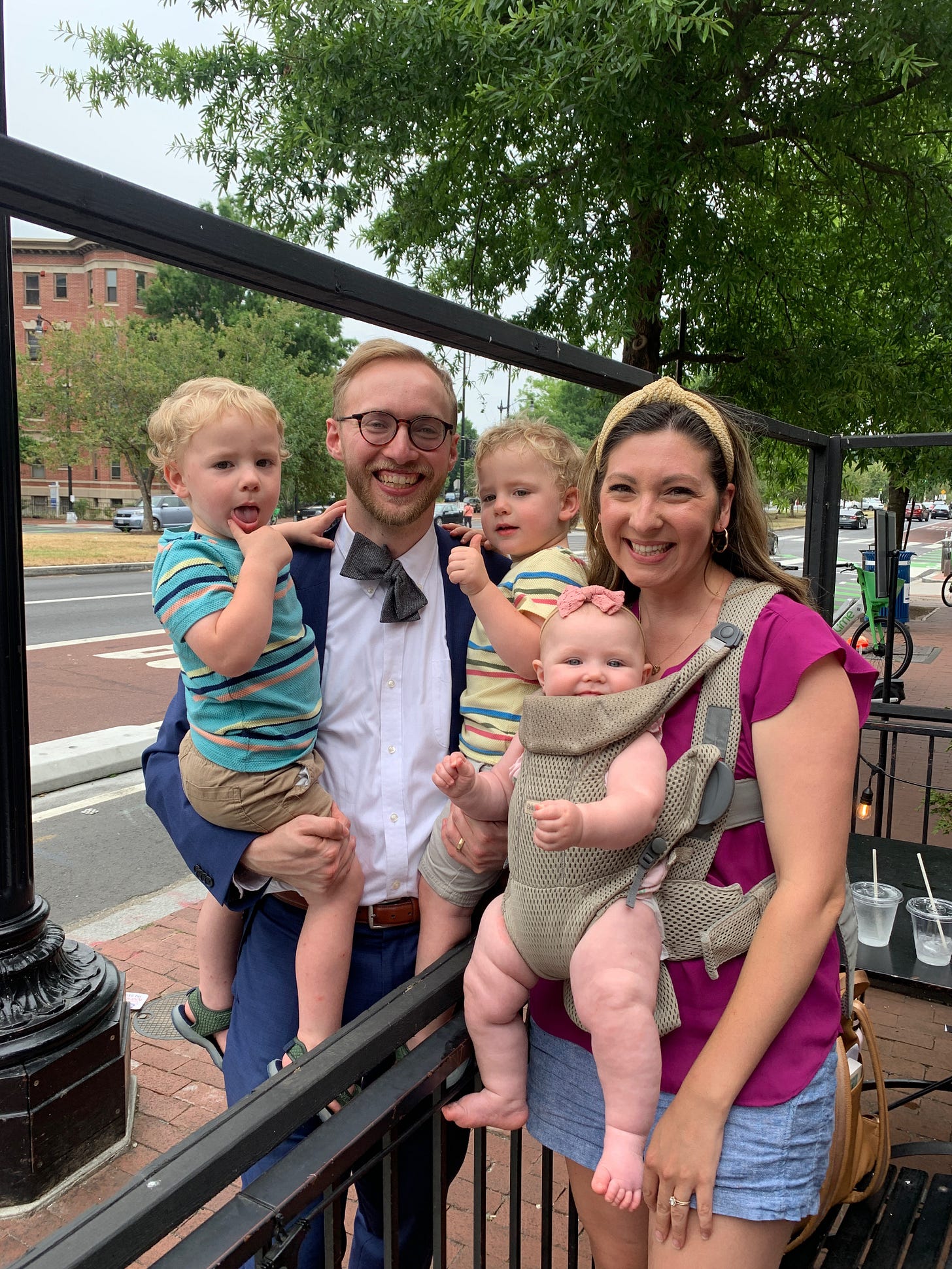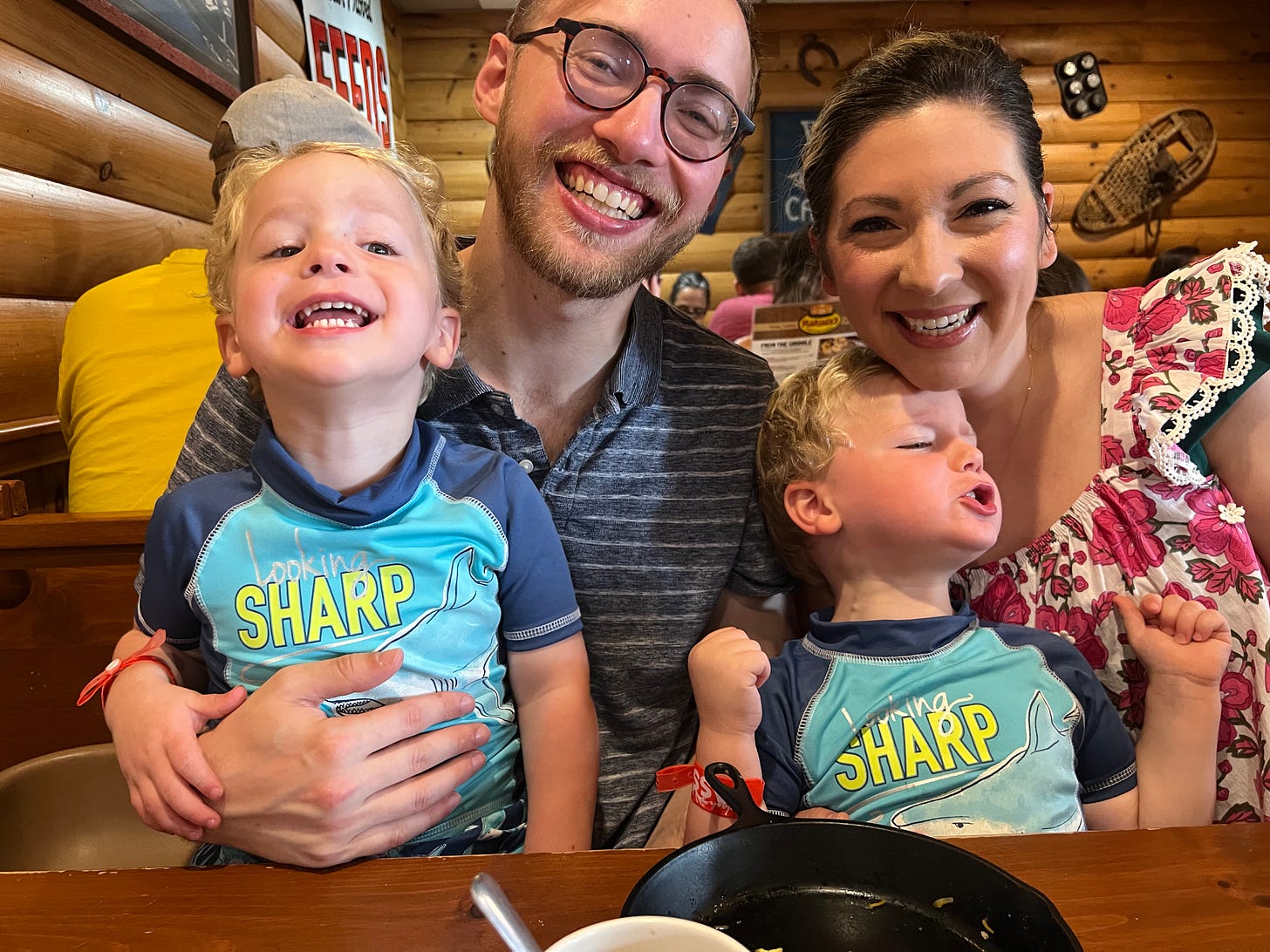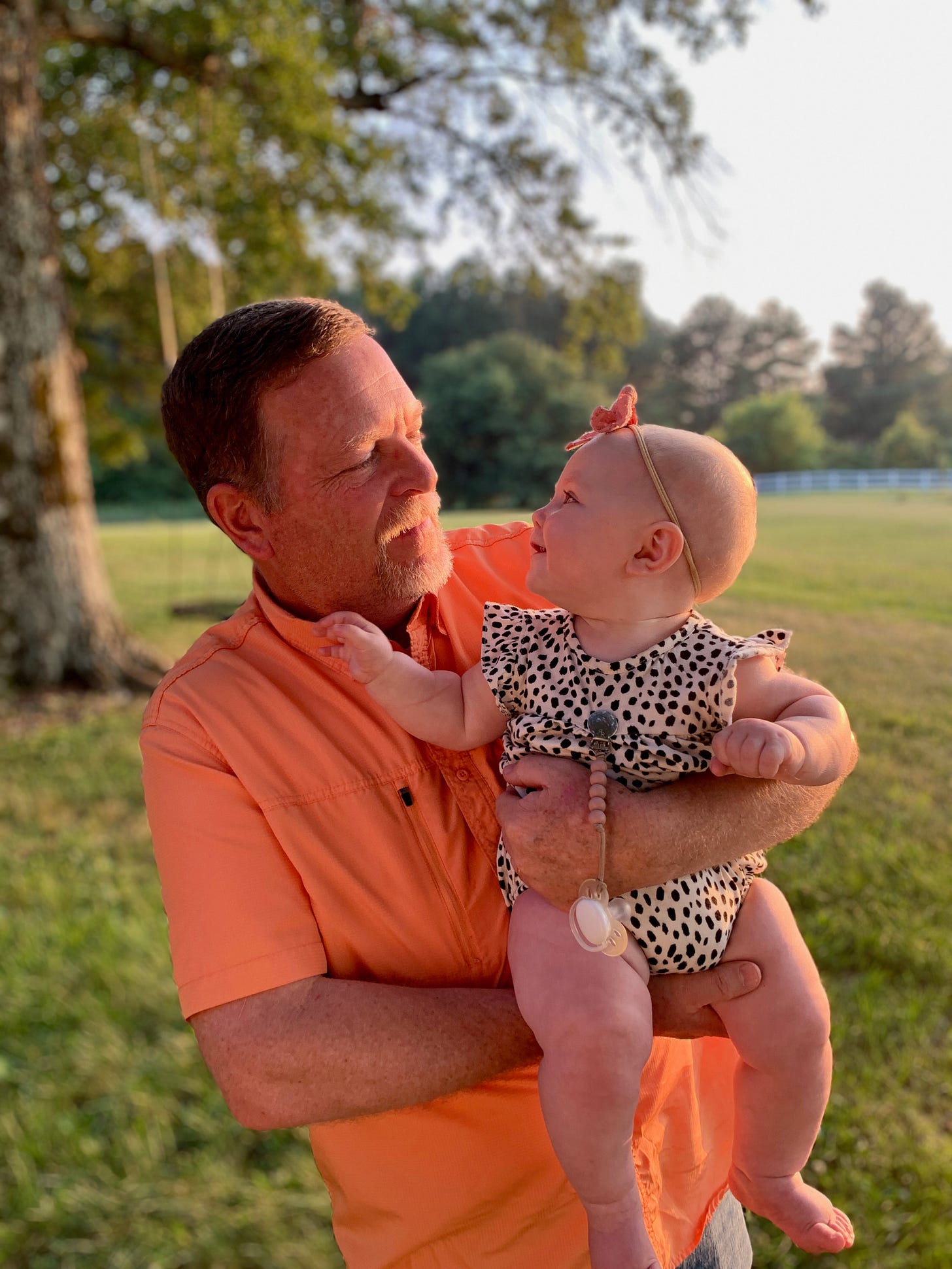This One's About Sex (June)
Sex in public; what Ozempic has in common with contraception; technology and Christian ethics; loving transgender youth
Over the past few days, I’ve seen many articles and conversations about Ozempic, a new drug for treating Type 2 Diabetes which is also being prescribed to overweight patients in order to help them shed some pounds. A friend sent me this article, which highlights the tension some people feel between using the drug to lose weight versus “doing the work” to lose it naturally themselves. My friend asked me, “What does Christian ethics have to say about Ozempic?” and “When are shortcuts okay for the Christian?”
It’s an interesting question, though I’m not convinced that the issue with Ozempic (if there is a moral issue with Ozempic) is about shortcuts. After all, is driving to work instead of walking or running a shortcut? taking the easy way out? not “doing the work yourself” to get from point A to point B? morally wrong? Obviously not. Ozempic, like the automobile, is a technology. And as with all new technologies, the question with Ozempic is about whether and how we should incorporate it into our lives.
Some technologies (like the wheel, washing machines, Tylenol, computers, etc.) are very helpful, and we use a lot of them without a thought — in fact, we oftentimes forget that these things are technologies, taking for granted that they haven’t always existed. But as new technologies come along — like AI, Ozempic, or lab-grown meat — Christians must think deeply about what biblical, Christian principles are at play, and make a determination about whether and how we should incorporate them into our lives.
I don’t know enough about Ozempic to make that determination, though from my cursory reading, it seems like the drug is helpful in treating Type 2 Diabetes, which is a mercy (though it could also have drawbacks). But this question about technology has been one that has flooded my brain for years, ever since I began studying Christian Ethics at Yale Divinity School. Specifically, I have been curious about the ethics of contraception, which is itself a form of technology used, in various different ways, to block conception.
In many cases, Christians have had a healthy skepticism for new technology, and especially for technologies that seem to supersede nature. Take, for example, vaccines, and specifically new vaccines (such as the COVID vaccine) that have little long-term testing. It is right and good for Christians to weigh the risks and benefits of such technologies, especially when we’re injecting them into our bodies. So why don’t we approach the topic of birth control with the same level of skepticism as we do the COVID vaccine, Ozempic, or other new drugs that could have perilous, long-term side effects on our bodies?
Perhaps the problem is that many Christians don’t regard hormonal birth control as “new”; our moms used it and they turned out fine (did they?). But consider this: “the pill” was first approved by the FDA in 1960, the modern IUD in 1988, the injectable implant in 1990, the NuvaRing in 2001, and the patch in 2002. We’re only just starting to see the long-term impacts of the use of hormonal contraceptives, and young women (like myself) are scared. To add insult to injury, it’s unproven that even birth control billed as “safe” for fertilized eggs isn’t abortifacient, meaning that all hormonal birth control could cause the abortion of a pregnancy just after conception.
But as a Christian, I’m concerned by more than just the physical impacts that hormonal contraceptives have on our bodies. I’m also concerned with the theological implications of contraception. If God created sex for the unity of a husband and wife and for the procreation of children, as Scripture lays out, what does it mean for a Christian to intentionally frustrate one or both of those ends? How does marriage change when pregnancy is no longer a natural, possible result of sexual union? How are our views of children impacted when children become a choice, wanted or unwanted? (Here’s a piece I wrote last year about why we shouldn’t consider children to be a choice.)
These are all questions worth asking, especially for those who are married or considering marriage soon. They’re questions I’ve been asking for a while, and I’ve been disappointed to find little resources from a Protestant, Christian perspective to help me answer them. That’s why I’m endeavoring to think and write about these issues in a more focused manner in the weeks and months to come. And I’m hopeful that my new fellowship with the Paul Ramsey Center for Bioethics and Culture will help me think about them more cogently.
In the meantime, here are several books and articles that have been informing my thinking of late about sex, gender, and contraception, among other things.
Reading
Books
The Genesis of Gender, Abigail Favale — Hands-down the best treatment of the issue of gender that I’ve read: “If we think marriage is easy and self-satisfying and the celibate life is difficult and self-denying, we've understood neither, at least not in the Christian sense. The cross is not imposed on gay and celibate people but offered to all as a means to holiness. We are all asked to curb our sexual desires out of deference for human life and its genesis in human sexuality.”
My Life in France, Julia Child — In keeping with my goal of becoming a better cook this year: “This is my invariable advice to people: Learn how to cook- try new recipes, learn from your mistakes, be fearless, and above all have fun!”
Bible
Ezekiel, Hosea, Joel, Amos, Obadiah, Jonah, Micah
“I can’t stand your religious meetings. I’m fed up with your conferences and conventions. I want nothing to do with your religion projects, your pretentious slogans and goals. I’m sick of your fund-raising schemes, your public relations and image making. I’ve had all I can take of your noisy ego-music. When was the last time you sang to me ? Do you know what I want? I want justice—oceans of it. I want fairness—rivers of it. That’s what I want. That’s all I want.” Amos 5:21-24
“They flatter you with compliments, but all they care about is making money and getting ahead. To them you’re merely entertainment—a country singer of sad love songs, playing a guitar. They love to hear you talk, but nothing comes of it.” Ezekiel 33:30-32
“Your preachers cover up for the politicians by pretending to have received visions and special revelations. They say, “This is what God , the Master, says . . .” when God hasn’t said so much as one word.” Ezekiel 22:26-29
Articles / Essays
“Procreation and Children,” Matthew Lee Anderson, chapter from Protestant Social Teaching (hard copy) — On the topic of technology and contraception: “The question of contraception is centrally about the moral status of the nature of our own bodies and their inherent teleology toward reproduction. It is a curiosity that a movement founded upon Luther’s reification of the body has now turned against it… One worries, though, that Protestantism’s theological imagination was not robust enough to resist the technologization of nature wrought in the early modern world…”
Navigating the Scylla and Charybdis: Paul Ramsey and Contemporary Political Theology, John Shelton (hey, I know that guy!), Providence Magazine — “In a time when our national politics leaps from exigency to exigency, taking every situation to be uniquely urgent, we need the cool and careful analysis of a Paul Ramsey. We need a theology that can lay out the boundaries of acceptable Christian action and take political responsibility seriously, but also one that understands the difference Christ makes for all of our moral reasoning.”
The Limits of Sex as an Icon for God, Matthew Lee Anderson, The Path Before Us — Matthew Lee Anderson is a friend and I endeavor to read everything he’s written on the issue of contraception; he’s one of the few Protestants who’s done it: “Evangelicals doubtlessly need an ethics of marriage and sex that captures its significance, both within the boundaries of creation and as a sign and indicator for the eschatological life. Yet the pedagogy of sex is fraught with dangers on every side, and liable to lead us into theological distortions if not handled with the utmost care. Evangelicals were never going to win the “sexual arms race” to outdo our neighbors in being “sex-positive.” Nor should we try. The fruitfulness of the church’s witness does not depend upon how many different colors of crayons we use to paint the glories of sex, but how faithfully we embody the quiet continence and chastity within our homes and families. “
Sex In Public, Stanley Hauerwas, chapter from A Community of Character: Toward a Constructive Christian Social Ethic — “Many people are particularly disturbed when they are told that contemporary Christian ethics has little coherent to say about sexual ethics. We live in a cultural situation that is extremely confusing in regard to sex and we rightly feel we need some guidance from somewhere… Sexual ethics cannot be separated from political ethics if we are to understand why Christians believe that sexual practices should be determined by how they contribute to the good end of the Christian community.”
Transgender Teens, Pronouns, and Preferred Names: Youth Pastors Grapple with New Questions, Ericka Andersen, Christianity Today — A much-needed conversation: “Several evangelical pastors working with youth told CT they believe it’s possible to maintain orthodox Christian standards while loving transgender youth with compassion and truth within the context of relationship.”
Why Are So Many Girls On SSRIS?, Freya India, GIRLS — On another common medical technology: “We shouldn’t stigmatise those who are suffering. But we should think carefully about our compassion, where we direct it, and how it can be co-opted. Because I don’t believe for a second that compassion is making serious medication as accessible and convenient as possible to the point it resembles Deliveroo. I don't believe compassion is expanding the pharmaceutical market to include any girl who experiences negative emotions. And nor is it normalising and normalising and normalising diagnoses and drugs until we start to stigmatise how it feels to be human. The truth is that we are a generation of girls and young women with more drugs available to us than ever before. For every surge of anxiety, sadness, panic, period pain or social awkwardness, there’s Prozac, Paxil, Celexa, Effexor, Zoloft. Diagnosed in five minutes. Prescribed in ten. It’s futuristic. It’s revolutionary. It doesn’t really work. Because the easier they make it to sign prescriptions and swallow pills, and the more Mental Health Awareness months and weeks and campaigns flood our inboxes and app stores and algorithms, the worse we seem to feel.”
Poetry
“B” by Sarah Kay
If I should have a daughter, instead of mom, she’s going to call me Point B,
because that way she knows that no matter what happens,
at least she can always find her way to me.
And I am going to paint the Solar Systems on the backs of her hands,
so she has to learn the entire universe before she can say ‘Oh, I know that like the back of my hand’
[read the whole thing, or better yet — watch it].
Writing
Author’s page, WORLD Magazine
Loving
These incredible toffee bars from America’s Test Kitchen. I had them at a baby shower recently and then had to recreate them myself. They are *chef’s kiss.*
Remembering
This Month
A visit to the British Embassy!
Julie & Julia’s bruschetta. Omg.
The Children’s Museum with friends <3
DaVinci exhibit at our library! Which also has a slide!
Sweet TN times.
Don’t do a mirror maze with identical twins unless you want a glimpse into what it’d be like with octuplets.
Anniversary dinner <3 Happy four years, love!
“You only get one sunset per day.” -My Mom
We had a lot of fun in TN, if you can’t tell.






















Exactly! It’s bonkers. I’m finally getting around to writing more about it. The FDA approving the pill for over the counter use was an absolute softball teeing this article up: https://wng.org/opinions/the-pill-and-the-christian-conscience-1689678756.
I remember, after being immersed in some Catholic teaching on the body and sexuality in the past couple years...... trying to find what Protestant traditions have as far as a theology of the body/artificial reproduction/surrogacy/contraception that alters the functioning body...... finding mostly crickets (except for Matthew Lee Anderson, of course lol).
What I did encounter was Protestants left and right being really open about sterilizing themselves after a few kids, like it's just par for the course(???) Have we no theology of our bodies? Are we really just going full utilitarian here? My husband and I joke that the next time someone asks if we're "done having kids" we turn around with: "Do you mean to ask if we're planning to sterilize ourselves once we feel good about a certain number of children? No, we aren't."
Anyways, I'm excited to read some of the links I hadn't yet come across!